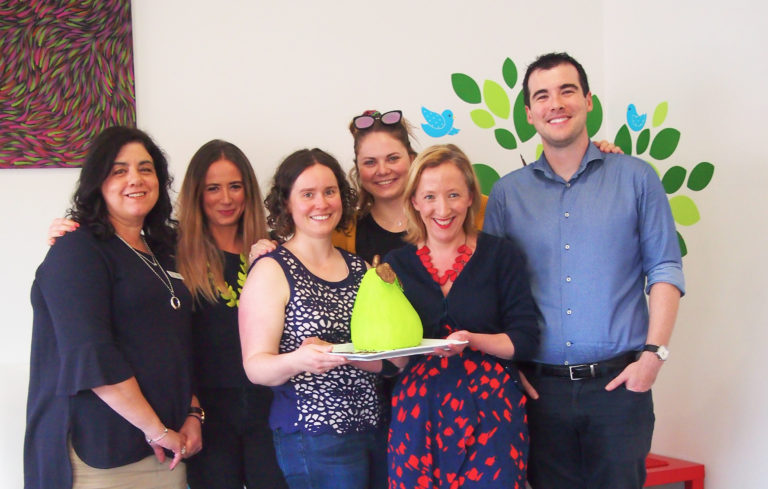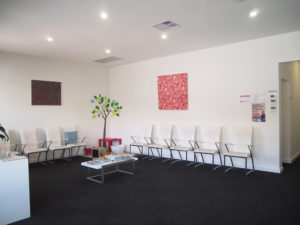Practices in Focus
Pear Tree Family Practice

Located in the beachside, palindrome-named suburb of Glenelg, in South Australia, Pear Tree Family Practice (Pear Tree) is aptly named, thanks to being located in Partridge Street. The practice is an independently owned healthcare practice that provides health services for patients of all ages.
Pear Tree’s aim is to provide the same standard of care they would like their own family members to receive; thorough, high quality, current and all-inclusive care, with a strong emphasis on preventative health. Pear Tree operates with the full time equivalent of one and a half GPs and support staff, and offers many additional services including musculoskeletal medicine, chronic disease management and specialised women’s health care including obstetrics shared care and IUD insertion and removal.
Interview
We spoke with Maria Arnold, Pear Tree’s Practice Manager about how their first year of operation has been, and how the practice approached accreditation as a new practice.
AGPAL Team: What achievements have you experienced in your firstyear of operation?
Maria: During our first year of operation we have been thrilled to have other doctors join us, achieved AGPAL accreditation and created a practice that responds to local needs.
AGPAL Team: Were there any areas you identified for improvement?
Maria: Pear Tree has a relatively young patient cohort comprising 30% children, with a large number of these being under five years old, receiving National Immunisation Program vaccinations.
There is particular demand from the community for vaccination on a Friday, which has made it challenging to offer services other than vaccinations on a Friday, with anywhere between 15 to 30 vaccinations completed with only 1-2 FTE doctors on. We have had to create processes around managing this demand, which resulted in three key steps – availability of vaccination only appointments, implementing a duty doctor who can fit these patients around their other bookings, and utilising the time and skills of our practice nurse.
For a vaccination only appointment, our practice nurse will complete the height, weight and developmental screen for each child, and discusses the vaccines and their common side effects with the patients and/or caregiver. The duty doctor is then assigned to each session to check the vaccination, ensure patient consent has been provided and reviews growth and developmental progress of the patient if relevant. This process has worked better for everyone – our nurse, doctors and patients.
We have found that the nurse is utilising her skills better, patients don’t have to wait as long for the doctor and the doctor can also then provide care for non-vaccination matters.

AGPAL Team: We understand you have some diverse clinical rooms, could you tell us a bit more about them?
Each clinical room at Pear Tree has been set up to facilitate procedures (skin excisions, IUD insertions) to maximise the limitation of space within our practice building. Our practice nurse will start any preparation with the patient in their room and the patient will then attend the doctors’ room for the procedure. This means each doctor can do an ECG in their room without the nurse if they are seeing other patients and facilitates patient flow as doctors are not waiting for the treatment room to be free.
AGPAL Team: As a family owned, less than a year old practice, how did the accreditation process assist Pear Tree’s day-to-day operation?
Maria: Undertaking the accreditation process forced us to focus on the systems that we use in the practice. Registering early with AGPAL for accreditation, prior to opening our practice, actually meant that we had less work to do in setting up the business. AGPAL provided many of the templates and information to help us run the business side of the practice. It meant that we could tailor the templates and manuals to fit our practice rather than having to create them from scratch.
AGPAL Team: Was your entire team involved in your self-assessment process? If so, how did you delegate the tasks?
Maria: The entire clinical team was involved in the selfassessment process, with different people being delegated to be in charge at different times depending on their skill set and the stage of accreditation we were in. Administration staff were encouraged to take ownership over the process, to ensure that our policy manual was not just a written document but one that actually reflected the day-to-day running of the practice.
None of our reception staff had worked in general practice before so this helped them to understand the reasoning behind some practice policies, such as the need for three point identification. AGPAL’s accreditation hub also made it easy for us to see what we had set up before accreditation and what still had to be done.
AGPAL Team: Do you have any tips to other new practices completing accreditation or looking to become an accredited practice?
Maria: Register with AGPAL as soon as you start to plan your practice. It makes life much easier for both accreditation and practice set up!




